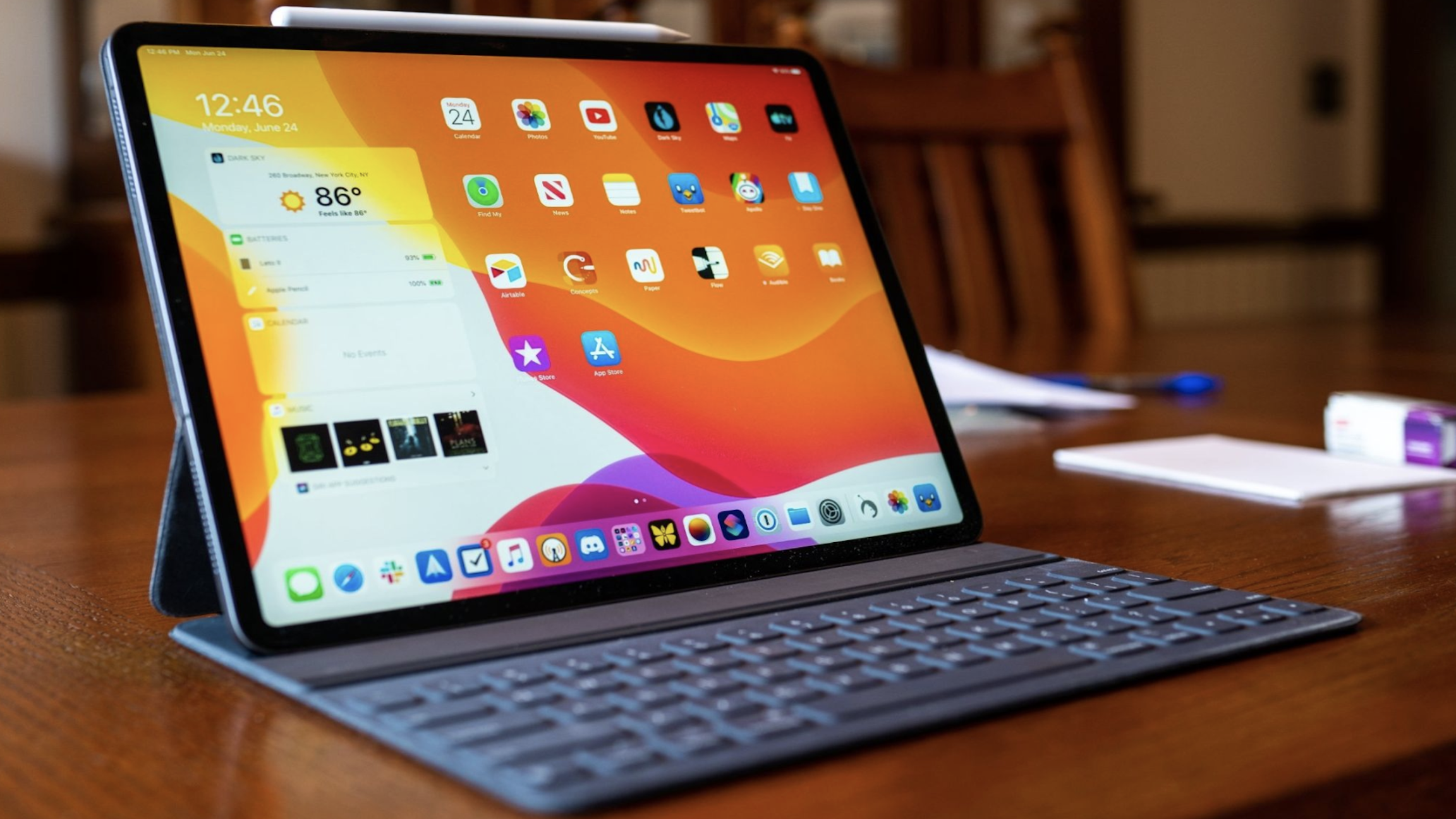
Apple's iPad line-up just got a major overhaul, with the new iPad Air 6 are iPad Pro M4 both available in 11in and 13in sizes. The new Air packs the M2 chipset, while the Pro is noticeably thinner, lighter, has a stunning OLED screen, and has more power on tap with the M4 chipset. Both tablets also support the all-new Apple Pencil Pro, and move the front-facing camera to the side. The introduction of M4 was one of the biggest announcements from the event, but it turns out there's a secret privacy feature that Apple didn't tell us about.
Security researcher Guilherme Rambo uncovered this gem and spilled the beans on Mastodon. Apparently, the M4 iPad Pro is the first device to rock Apple’s new Secure Indicator Light (SIL) mechanism. It's a change to the little orange and green dots that pop up when your mic or camera is in use, which Apple introduced back in iOS 14.
Here's Rambo's post on Mastodon:
Fun fact about the M4 iPad Pro: it’s the first device to support and use Apple's new Secure Indicator Light (SIL) mechanism. When using the microphone or camera, the corresponding indicator dot is effectively rendered in hardware (using the display), making it a lot less likely that any malware or user space app would be able to access those sensors without the user’s knowledge.
Privacy indicators are even more secure
In the new iPad, the privacy indicators are now hardware-based. This makes it a lot harder for sneaky malware or dodgy apps to hijack your sensors without you knowing. Historically, these indicators have been tied to software. Now, thanks to the Secure Exclave in the M4 chip, these lights are hardware-driven, making them way more tamper-proof.
Rambo had previously stumbled upon this Secure Exclave while poking around the M4 chip, but he wasn’t quite sure what it did. Now we know at least part of its job is to lock down those indicator lights so they can’t be fiddled with. It’s a pretty neat trick to keep users in the loop about what their devices are up to, and it’ll likely make its way to the iPhone 16 Pro’s A18 chip and future M4 Macs before long.







